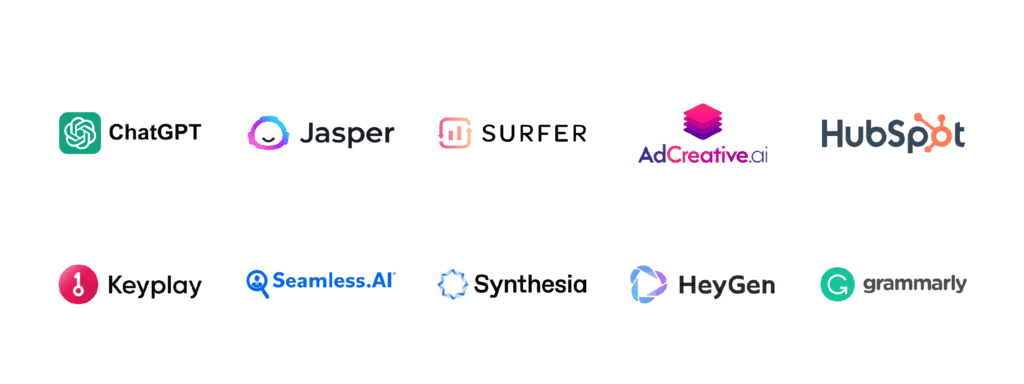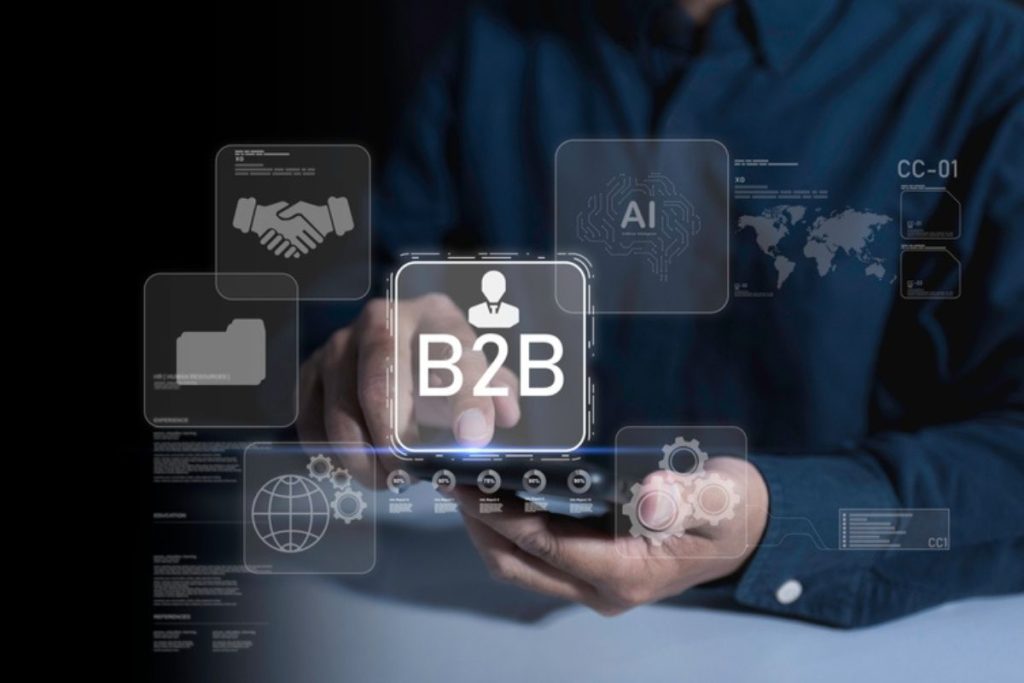Reinvent Your Organization: Just How AI Automation Is Changing B2B Workflow
AI automation is reshaping B2B operations in substantial means. Business are embracing this technology to streamline operations and improve efficiency. As jobs end up being automated, services can concentrate on strategic development as opposed to ordinary processes. The implications of these changes are extensive, influencing everything from consumer communications to provide chain monitoring. Comprehending this improvement is necessary, as the future of service rest on the effective integration of AI right into day-to-day operations. What lies ahead in this advancing landscape?
Recognizing AI Automation in B2B Context
As organizations progressively look for efficiency, recognizing AI automation within the B2B context becomes crucial. AI automation refers to the application of man-made knowledge technologies to enhance and improve organization processes. In B2B atmospheres, this can manifest in different kinds, such as automating data entry, maximizing supply chain logistics, or enhancing stock management. Organizations leveraging AI automation can minimize functional costs, reduce human mistake, and boost performance. In addition, AI devices can evaluate huge quantities of data to supply workable understandings, allowing educated decision-making. The combination of AI right into B2B procedures not just changes traditional workflows however likewise promotes agility and scalability, enabling services to adjust to market changes quickly and effectively. Accepting this technology is important for staying affordable in today's electronic landscape.
Enhancing Consumer Experience With AI
Exactly how can AI transform customer communications in the B2B market? AI improves customer experience by providing personalized, prompt, and effective service. Digital aides and smart chatbots can manage questions 24/7, ensuring clients obtain instant reactions. Anticipating analytics make it possible for services to anticipate customer demands, tailoring offerings accordingly. AI-driven platforms can analyze consumer data, permitting targeted advertising and marketing methods and enhanced engagement. Additionally, view analysis tools assess customer feedback, aiding organizations fine-tune their services. By automating routine tasks, AI liberates personnels to concentrate on high-value communications, promoting more powerful relationships. The assimilation of AI not only simplifies communication yet likewise constructs count on and commitment, eventually elevating the general customer experience in the affordable B2B landscape.
Enhancing Supply Chain Management With AI
AI plays an important role in optimizing supply chain administration with anticipating analytics and automated supply control (Minarik AI). By leveraging predictive analytics, services can anticipate need fluctuations and adjust their operations appropriately. Automated inventory systems even more boost effectiveness by ensuring supply levels are kept, minimizing waste and boosting total efficiency

Predictive Analytics Benefits
While many companies deal with difficulties in taking care of complex supply chains, predictive analytics uses a transformative service by leveraging huge amounts of data to anticipate patterns and enhance operations. By examining historic data together with real-time inputs, anticipating analytics enables companies to recognize patterns and anticipate future demands. This insight enables for even more informed decision-making, enhancing performance and reducing costs. Furthermore, companies can proactively resolve possible interruptions by forecasting supply chain traffic jams and changing strategies as necessary. The assimilation of anticipating analytics not only boosts stock management but also promotes more powerful partnerships with suppliers and customers with prompt actions to market changes. Eventually, the adoption of predictive analytics equips companies to stay affordable in a progressively vibrant company environment.
Automated Supply Control
As services increasingly depend on predictive analytics to optimize supply chain operations, automated supply control becomes an effective ally in this initiative. By leveraging AI-driven modern technologies, business can improve accuracy in supply tracking, lower stockouts, and decrease excess stock. Automated systems analyze real-time information, allowing companies to forecast need changes and change stock degrees as necessary. This not just streamlines order gratification however additionally enhances cash money flow monitoring by reducing holding prices. Furthermore, AI can identify patterns in buying actions, enabling more educated decision-making relating to provider relationships and procurement strategies. Eventually, automated supply control not just boosts functional efficiency yet also enhances client fulfillment by making sure product accessibility, strengthening its duty as an essential element in modern supply chain administration.
Data-Driven Choice Making Powered by AI
In today's affordable landscape, organizations significantly rely on data-driven decision-making to improve operational efficiency and critical preparation. Expert system plays a critical role in this transformation by analyzing vast amounts of information swiftly and precisely. AI algorithms identify patterns, patterns, and anomalies that human analysts may overlook, making it possible for services to make educated choices based on real-time insights - Minarik AI. This capability enables business to anticipate market shifts, optimize source allowance, and tailor their offerings to customer needs. Additionally, AI-driven analytics promote danger analysis and management, ensuring that organizations can navigate unpredictabilities efficiently. By leveraging these sophisticated tools, organizations not only boost their decision-making procedures however likewise obtain a competitive benefit in their corresponding markets, cultivating development and innovation
Automating Repeated Jobs to Boost Performance
Streamlining recurring jobs with automation considerably improves performance within B2B procedures. By applying AI-driven remedies, business can eliminate ordinary activities such as information entry, billing handling, and report generation. This change enables employees to concentrate on higher-value jobs, fostering imagination and calculated thinking. Automating these time-consuming procedures not just decreases human error but also speeds up operations effectiveness. Additionally, companies can accomplish consistent outcomes and enhanced precision, which is important in keeping customer contentment. The integration of automation tools enables companies to allocate resources more successfully, ensuring that groups can respond promptly to market needs. Ultimately, adopting AI for repetitive tasks is a strategic action that transforms operational capabilities and drives general business development.
Incorporating AI With Existing Service Procedures
When incorporating AI with existing business procedures, numerous companies face obstacles. These challenges usually originate from an absence of understanding relating to just how AI can complement existing operations. Successful combination needs a comprehensive analysis of existing operations to determine locations where AI can include worth. Organizations should also ensure that their groups are furnished with the essential abilities to leverage AI devices efficiently - Growth Systems For B2B. Additionally, seamless integration depends upon the compatibility of AI modern technologies with legacy systems. Business frequently find it advantageous to embrace a phased approach, piloting AI applications in particular divisions prior to a wider rollout. This approach enables adjustments based on preliminary comments, assuring smoother changes and maximizing the prospective benefits of AI automation in enhancing efficiency and effectiveness
Future Patterns in AI Automation for B2B Firms
As B2B business want to the future, boosted data analytics is readied to play a critical role in driving decision-making procedures. Smart process automation will certainly likewise become a crucial pattern, simplifying operations and enhancing performance. These advancements promise to reshape just how organizations operate, inevitably causing more nimble and responsive companies.
Boosted Data Analytics
While companies significantly rely upon data-driven decisions, the duty of AI in boosting information analytics is ending up being a lot more vital in B2B procedures. AI modern technologies promote the collection and evaluation of large datasets, making it possible for business to discover valuable understandings that drive tactical preparation. Anticipating analytics powered by AI permits companies to forecast market trends and navigate to this website customer behavior with greater precision. Additionally, machine discovering formulas improve data interpretation, recognizing patterns that human analysts may ignore. This brings about even more enlightened decision-making and optimized source allocation. As B2B firms remain to embrace AI-driven analytics, they can anticipate improved functional performance, enhanced customer experiences, and an one-upmanship in the market. The future of information analytics in B2B depends upon incorporating advanced AI capacities.
Smart Refine Automation
Smart Refine Automation (IPA) is poised to reinvent B2B operations by perfectly incorporating AI modern technologies with typical company procedures. This ingenious method integrates robotic process automation (RPA) with sophisticated AI abilities, enabling companies to enhance efficiency and accuracy. Business can automate repetitive jobs, such as data entry and invoice processing, allowing staff members to concentrate on strategic initiatives. IPA also leverages device discovering and all-natural language handling, improving decision-making through real-time information evaluation. As organizations progressively take on IPA, they can expect significant expense reductions and improved client experiences. Future fads indicate a growing reliance on IPA for scalability and adaptability, positioning companies to flourish in an ever-evolving market. Accepting IPA will be crucial for keeping competition in the digital age.
Regularly Asked Questions
What Industries Advantage Many From AI Automation in B2B Operations?

How Can Small Companies Carry Out AI Automation Efficiently?
Small organizations can execute AI automation successfully by recognizing repeated jobs, selecting appropriate tools, incorporating remedies gradually, educating personnel, and continually evaluating performance to maximize processes, ensuring a smooth changeover and optimizing efficiency.
What Are the Expenses Connected With AI Automation Implementation?
The expenses connected with AI automation application typically include software program purchase, facilities upgrades, training staff, recurring upkeep, and possible appointment fees. These costs can differ substantially based upon the scale and complexity of the automation remedies selected.
Just how Do I Determine ROI From AI Automation Initiatives?
To measure ROI from AI automation initiatives, one should examine price financial savings, productivity enhancements, and revenue growth versus execution prices. Tracking vital efficiency indicators with time provides useful insights into performance and general roi.
What Abilities Are Required to Manage AI Automation Projects?
Efficient administration of AI automation tasks needs abilities in project monitoring, information analysis, shows, and understanding AI technologies. In addition, solid communication, analytical capabilities, and flexibility are crucial for navigating the intricacies of such campaigns.
As companies increasingly seek efficiency, comprehending AI automation within the B2B context becomes crucial. The assimilation of AI right into B2B operations not only transforms standard operations but also promotes dexterity and scalability, enabling businesses to adjust to market modifications swiftly and efficiently. While businesses progressively count on data-driven choices, the function of AI in improving information analytics is ending up being more essential in B2B procedures - Growth Systems For B2B. Smart Process Automation (IPA) is positioned to reinvent B2B operations by perfectly integrating AI technologies with standard business processes. Reliable monitoring of AI automation tasks calls for skills in task administration, information analysis, shows, and recognizing AI technologies